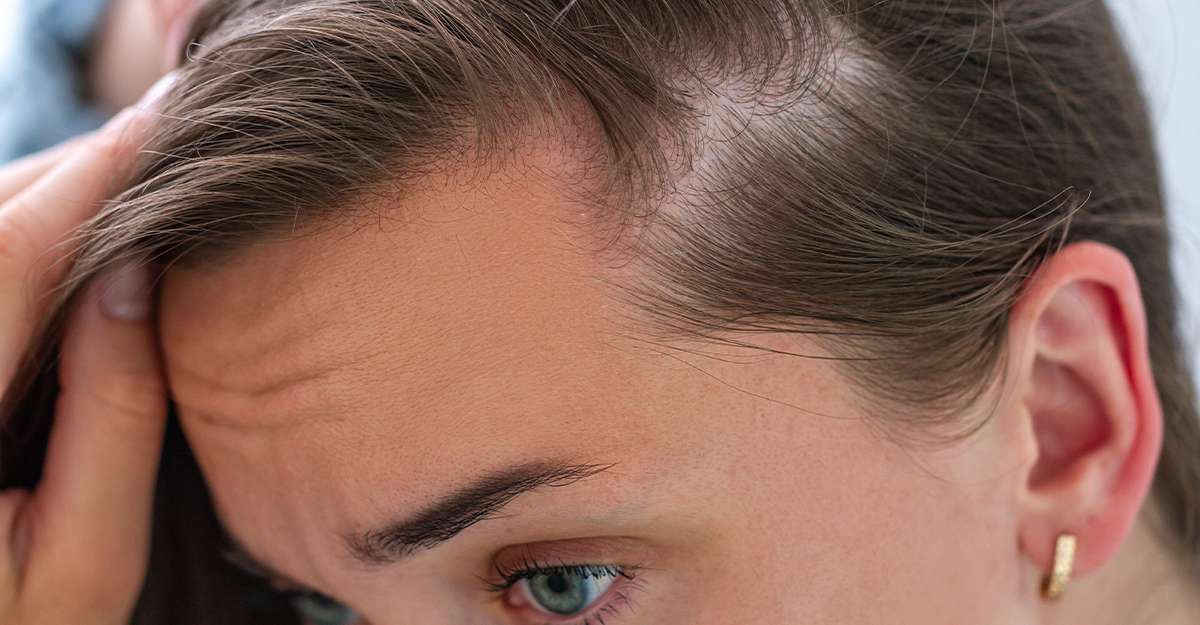
What Vitamin Deficiency Causes Hair Loss?
"When hair loss is due to nutrient deficiencies, identifying the specific nutrients - like folate and vitamin B12 - and repeating them can restore hair health and growth."
When hair loss is due to nutrient deficiencies, identifying the specific nutrients - like folate and vitamin B12 - and repeating them can restore hair health and growth. Today's article will explore the relationship between nutrient deficiencies and hair loss. Keep reading to learn more about:
● What vitamin deficiency causes hair loss?
● The role of vitamin B12 and folate
● How to restore nutrient levels
● Liposomal supplements for hair health
Nutrient Deficiencies and Hair LossThe hair cycle has four stages:
● Anagen (growth phase)
● Catagen (transition phase)
● Telogen (resting phase)
● Exogen (shedding phase)
There are around 100,000 hair follicles on the average human head, and most of the time, about 90% are in the anagen phase. This growth phase requires significant nutrients, including protein, vitamins, and minerals, to support hair growth. (Source 1)
"This growth phase requires significant nutrients, including protein, vitamins, and minerals, to support hair growth."
Nutrients that play a critical role in the normal hair cycle include:
● B vitamins - including biotin, riboflavin, folate, vitamin B12
● Vitamin A
● Vitamin C
● Vitamin E
● Vitamin D
● Iron
● Selenium
● Zinc
● Protein
Deficiencies in these nutrients can inhibit hair growth, and improving nutrient status may help. (Source 1)
Folate and Vitamin B12, Methylation, and Hair
Both folate and vitamin B12 are part of the B-complex of vitamins, which are involved in cellular metabolism and turn calories into energy. They also work together as cofactors in the methylation cycle, which is involved in DNA and protein synthesis, processes that occur in all cells, including hair follicles. (Source 1)
Deficiencies in vitamin B12 and folate are associated with hair loss. Vitamin B12 deficiency is also associated with premature graying or whitening of hair. Additionally, those with the MTHFR gene mutation, which affects the metabolism of vitamin B12 and folate, can experience hair loss. (Source 1)
Discover the details about the methylation cycle and MTHFR in these articles:
● Methylation Cycle and Phosphatidylcholine
● Vitamin B12, Folate Deficiency Symptoms and SNPs
How to Increase Folate and Vitamin B12 Levels
The first strategy for optimizing folate and vitamin B12 levels is nutrition. Choose a variety of whole, nutrient-dense foods daily and minimize processed foods, including fortified ones. Fortified foods do not contain the correct forms of B vitamins.
Folate primarily comes from plant foods, and adults require 400 mcg DFE (dietary folate equivalents) daily from food sources. Good sources of folate include:
● Liver
● Dark leafy greens (spinach, kale, collards, mustard greens, etc.)
● Legumes and lentils
● Broccoli and brussels sprouts
● Asparagus
● Avocado (Source 2)
You'll find vitamin B12 primarily in animal foods. Those who limit or avoid animal foods are at higher risk for deficiency and may require supplementation. Adults require 2.4 mcg of vitamin B12 daily. Good sources include:
● Liver
● Shellfish
● Fish
● Meat
● Poultry
● Dairy products
● Eggs (Source 3)
With some attention, many people can meet their folate and B12 needs with diet alone. However, because of genetic or environmental reasons, some people may have higher requirements and benefit from supplementation. Further, some people will benefit from additional methylation support, such as TMG (trimethylglycine or betaine).
Liposomal B12 and Folate for Hair Health
Regarding B vitamin supplementation, we want to consider both the form of the vitamins and the delivery method. Many supplements contain inexpensive, synthetic B vitamins that aren't in their active form. For example, you'll primarily find folic acid and cyanocobalamin in supplements, which are not identical to the folate and vitamin B12 found in food or the active forms the body requires.
L-methyltetrahydrofolate (methylfolate) and methylcobalamin (methyl B12) are the active folate and vitamin B12 forms. The cells in the body can use the nutrients right away and don't have to transform them. Notice that both these forms contain "methyl;" they can pop directly into the methylation cycle to support hair health.
"L-methyltetrahydrofolate (methylfolate) and methylcobalamin (methyl B12) are the active folate and vitamin B12 forms. The cells in the body can use the nutrients right away and don't have to transform them. Notice that both these forms contain "methyl;" they can pop directly into the methylation cycle to support hair health."
Core Med Science Liposomal B-12 Folate TMG (Liquid Spray) contains methylfolate, methyl B12, and TMG for comprehensive methylation support. Additionally, the liposomal formula allows for superior absorption compared to conventional B vitamins. The liposomes are absorbed directly through the mouth into the bloodstream. When swallowed, the nutrients survive the digestive system and are absorbed via the small intestine.
This supplement truly offers the best nutrient forms and delivery!
When you need support for hair health, don't overlook the power of nutrition. Hair loss can be a sign of nutrient deficiencies because hair requires so many nutrients for optimal growth. In this case, liposomal nutrients including Core Med Science Liposomal B-12 Folate TMG can help!
References:
- Almohanna, H. M., Ahmed, A. A., Tsatalis, J. P., & Tosti, A. (2019). The Role of Vitamins and Minerals in Hair Loss: A Review. Dermatology and therapy, 9(1), 51-70. Full text: https://www.ncbi.nlm.nih.gov/pmc/articles/PMC6380979/
- https://ods.od.nih.gov/factsheets/Folate-HealthProfessional/
- https://ods.od.nih.gov/factsheets/VitaminB12-HealthProfessional/
